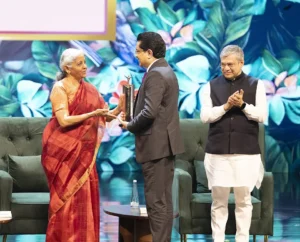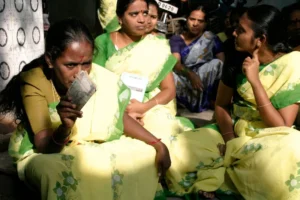The Depression of Mass Consumption
According to official national income figures, India’s economy is growing rapidly. However, national income, or GDP, is not a directly observed fact, but a construct. Much depends on how it is constructed out of directly collected data; and the current GDP series has been controversial from the day it was introduced. More to the point…
Two Faces of the Demand Problem (Part 1)
I. Mountains of Cash India’s large capitalists and India’s people are both facing problems at present. These problems appear to be direct opposites of each other; but in fact they are two faces of the same phenomenon. In the first part of this article, we describe the financial situation of the corporate sector. In the…
Two Faces of the Demand Problem (Part 2)
II. Deteriorating Financial Situation of the People Elsewhere in this issue of Aspects, we have described the fall in real incomes of the masses of people in recent years, and how this fall had resulted in the decline in the sales of ordinary items of mass consumption (from soap to textiles to footwear). In the…
Two Faces of the Demand Problem (Part 3)
III. Accumulation amid Distress In the previous two parts we saw that the corporate sector and the banks are sitting on a mountain of cash, and refusing to invest, for lack of demand; on the other hand, vast numbers of working people are facing distress, and are resorting to borrowing to meet their basic needs.…
The Real Issues Underlying the Ever-Deepening Crisis of BSNL and Other Public Sector Units
In Aspects no. 80 we followed the story of the development of the mobile telecom services sector in India since the entry of private firms around 30 years ago. We brought out how it has come to be controlled primarily by two massive private monopoly houses, with one private and one public sector firm retaining…




